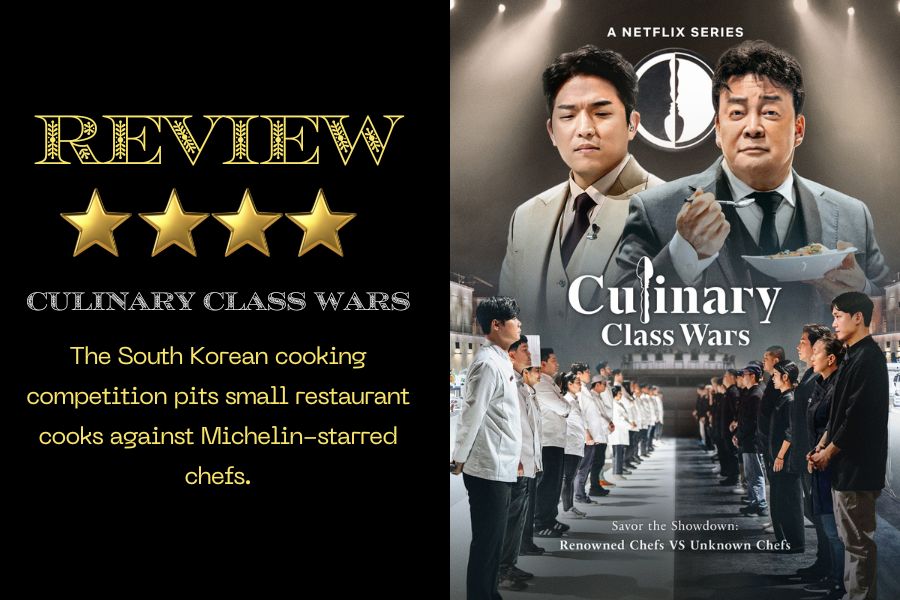October 17, 2024: Netflix’s Culinary Class Wars is a bold new entry into the world of cooking competitions, boasting 12 episodes per season that highlight the growing global appeal of Korean content. With a unique twist on the traditional culinary showdown, this reality series sets itself apart through its sheer scale, diverse contestants, and exploration of Korea’s vibrant culinary scene.
The competition opens by pitting 20 world-renowned chefs, dubbed the “White Spoons,” against 80 lesser-known professionals, known as the “Black Spoons.” The White Spoons are celebrated chefs who have earned their place in the spotlight through decades of experience, often with Michelin stars to their names. On the other hand, the Black Spoons are talented individuals who work on a smaller scale—ranging from school lunch ladies to fried-chicken restaurant owners to YouTube cooking personalities.
One of the show’s most interesting dynamics is how it plays on the “class” divide. The White Spoons are referred to by their real names, a mark of respect for their status in the industry, while the Black Spoons are known only by nicknames they’ve chosen for themselves. These nicknames range from “Napoli Mafia,” an Italian-cuisine specialist, to “Goddess of Chinese Cuisine” and “Comic Book Chef,” known for creating dishes inspired by graphic novels. The Black Spoons must fight their way through the competition to earn the right to reveal their real names—an achievement that symbolises their rise in prestige.
The show’s production is massive, with challenges designed to push contestants to their limits. Each task is more difficult than the last, creating a relentless battle of skill, creativity, and resilience. The intent is clear from the beginning: this isn’t just a cooking show—it’s a high-stakes contest that seeks to find one true winner.
Beyond the drama, Culinary Class Wars excels at showcasing Korean ingredients, fresh local produce, and the versatility of Korean cuisine. The show introduces these elements to a global audience eager to learn more about the country’s rich culinary traditions, which has undoubtedly contributed to its widespread popularity.
The series also smartly taps into the current global fascination with all things “K”—from K-pop to K-dramas—and uses it to promote Korean cuisine in a way that feels both authentic and exciting. The diverse cast, which includes Italian chefs based in South Korea, adds an extra layer of intrigue, as viewers watch these international and local chefs go head-to-head in a culinary showdown that transcends borders.
While the show has been widely praised for its ambitious scope and thrilling competition, some viewers may find room to criticise the final two episodes. The progression towards the finale left a few fans disappointed, particularly regarding the outcome. However, the creators have been clear from the outset: this is an unscripted show, and the results are based solely on the food presented. The unpredictability of the competition—complete with its surprising turnouts and sometimes controversial outcomes—is part of what makes it so addictive to watch.
In the end, Culinary Class Wars is more than just a cooking show; it’s a celebration of talent, perseverance, and culinary mastery, with a dash of drama for good measure. For fans of reality competitions and food shows, it’s a must-watch—one that will keep you on the edge of your seat from the first episode to the last.

